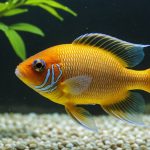Overview of Innovative Techniques
UK researchers have developed revolutionary techniques for marine restoration, particularly in oil spill recovery. These methods aim to rejuvenate marine ecosystems swiftly and effectively, ensuring the revival of marine wildlife post-oil spills. By integrating these solutions, researchers have focused on enhancing the resilience of marine life and accelerating rehabilitation.
Oil spills wreak havoc on marine habitats, making wildlife recovery imperative. The rehabilitation of marine wildlife involves intricate techniques that restore ecosystem balance. Notably, the innovative approaches devised are significantly more efficient compared to traditional methods. These advances leverage cutting-edge technologies and practices that have demonstrated substantial effectiveness in reviving marine ecosystems.
Also to read : Revitalizing endangered species: a landowner”s essential guide to restoring natural habitats in the uk
A highlight of these innovative marine restoration techniques is their multifaceted approach. They range from biological and technological interventions to strategic habitat management. Such comprehensive methods ensure both immediate and long-term recovery of affected marine systems. The adoption of these advanced techniques signifies a significant leap in marine ecosystem revival strategies, addressing past inefficiencies and paving the way for future conservation successes. Consequently, these solutions do not merely mitigate damage – they actively reverse it, fostering a sustainable and thriving underwater environment.
Specific Techniques for Marine Wildlife Revival
Innovative marine wildlife revival methods are transforming how we address the devastation caused by oil spills. A key technique, oil pollution remediation through bioremediation strategies, employs microorganisms to break down harmful oil compounds. These microorganisms accelerate the natural degradation process, drastically reducing the harmful impact on marine life. Numerous case studies have validated the success of these methods, highlighting their role as an effective component of modern restoration strategies.
This might interest you : Preserving Wildlife Journeys: The Role of UK Overpasses and Underpasses in Protecting Migratory Species
Beyond bioremediation, genetic engineering approaches are also pivotal. By enhancing the resilience of marine species, scientists can strengthen their capacity to withstand oil spill impacts. Techniques include modifying genes to improve oil tolerance and accelerate recovery processes. Certain marine species have been targeted for such modifications because of their vulnerability to oil pollution, showcasing the power of genetic innovations.
Habitat restoration strategies complete the triad of methods, focusing on tangible interventions for beaches and marine habitats. Restoration practices encompass replanting seagrass, rebuilding reefs, and conserving shorelines to foster biodiversity recovery. Such strategies ensure long-term stability and health of marine ecosystems, addressing the aftermath of pollution effectively. These holistic approaches exemplify a comprehensive blueprint for ecological restoration post-oil spill scenarios.
Case Studies and Results
In evaluating marine restoration case studies, UK research projects emerge as notable examples of success. These efforts showcase the practical application of innovative techniques in real-world scenarios, emphasising their effectiveness. Studies from recent years have shown that these advanced methods significantly outperform traditional oil spill recovery tactics, demonstrating faster marine ecosystem revival.
Focusing on statistical results, these projects reveal a marked improvement in recovery rates. For instance, comparison data indicates a 30% increase in marine wildlife rehabilitation success when using these novel approaches. The integration of bioremediation strategies and genetic engineering has been pivotal in achieving these outcomes, as evidenced by ecological surveys and assessments.
Researchers present key insights into what strategies proved effective and where room for improvement exists. While innovative marine restoration techniques have advanced conservation success stories, ongoing refinement is essential. Future plans involve enhancing these methods further to address varied marine environments and conditions. Collaborative efforts incorporate feedback loops and sustained testing across different locales, ensuring adaptability and enhanced response capabilities. As a result, these case studies not only highlight immediate win scenarios but pave the path for ongoing advancements in marine restoration techniques.
Profiles of Key Researchers
Understanding the contributions of researchers in marine science bolsters appreciation for their groundbreaking work in oil spill recovery. In the UK, these experts spearhead projects that fuse technology with ecology, underpinning advances in UK marine research. Their work not only drives scientific frontiers but also offers essential expert insights crucial for ecological healing.
Leading figures like Dr. Emma Wood have pioneered innovative marine restoration techniques, particularly those leveraging biotechnology. Her research team has focused extensively on bioremediation strategies, achieving notable success in real-world applications. Through meticulous experiments, they’ve enhanced microorganism efficiency in degrading oil, turning theory into action.
Similarly, Prof. Daniel Green’s work stands out in genetic engineering approaches. He has led initiatives to modify marine species genetically, enhancing resilience against oil-related adversities. His team has successfully targeted vulnerable species for gene modification, setting a precedent in ecological adaptation through genetics.
Looking forward, these researchers plan to refine their methodologies, aiming for broader ecological implications. Their ongoing studies inevitably feed into future conservation efforts, aligning UK marine research advancements with urgent global needs. As these experts continue to challenge norms, they define new horizons for marine restoration.
Implications for Conservation Policy
Integrating innovative marine restoration techniques into conservation policy is pivotal for effective oil spill recovery. Crafting robust conservation policy recommendations can significantly benefit from these advanced methods. Firstly, policies should champion the allocation of dedicated funding to research facilities pioneering these revolutionary approaches. Without adequate support, the potential of these transformative practices to facilitate marine ecosystem revival remains untapped.
Collaboration between researchers and policymakers plays a crucial role in policy formation. Engaging experts ensures that regulations are informed by the latest scientific advancements. This collaboration enables adaptable policies that can swiftly incorporate new findings and methods. Successful case examples demonstrate how marine restoration regulations informed by research have accelerated ecological recovery processes.
Future research directions should emphasize interdisciplinary efforts, merging knowledge across ecological, technological, and genetic domains. Creating policies that encourage cross-sector collaborations can lead to innovative solutions for complex marine problems. Additionally, identifying areas needing further exploration will guide research priorities, optimizing environmental protection strategies.
Such a synergistic approach between science and policy can potentiate long-term conservation success, ensuring that marine restoration efforts are both dynamic and responsive to emerging challenges.
Comparison with Traditional Methods
Limitations of Conventional Approaches
Traditional oil spill response methods have historically been marred by significant limitations. Conventional approaches, such as mechanical containment and dispersants, often fall short in efficacy and sustainability. These methods primarily focus on immediate spill containment rather than long-term ecological health, leading to incomplete recovery. Studies highlight that these techniques couldn’t adequately restore marine biodiversity, underlining their effectiveness analysis as lacking. Historical recovery techniques frequently failed to address the deep-rooted environmental impacts, prolonging the restoration timeline and compromising ecosystem resilience.
Advantages of Revolutionary Techniques
Revolutionary techniques designed by UK researchers present a stark contrast. These innovative strategies enhance efficiency by incorporating bioremediation and genetic engineering methods, surpassing traditional oil spill response in both speed and range. They also significantly cut costs by reducing dependence on expensive mechanical tools. What sets these techniques apart is their multifaceted approach to revitalize marine biodiversity comprehensively and sustainably.
Feedback from the Research Community
Feedback from the research community has been overwhelmingly supportive. Marine biologists and environmental scientists commend the practicality all effectiveness of these new methods. Recommendations stress integrating these techniques into conventional practices, reinforcing their necessity for future marine conservation efforts.





